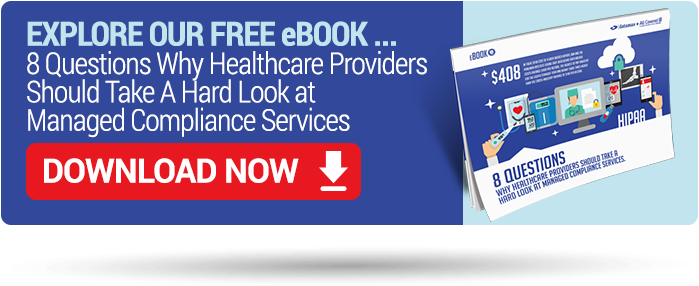
Physicians who fail to protect patient privacy face serious consequences. Security breaches bring bad press, and related fines range from $100 - $50,000 for each violation.
Office equipment has been transformed in recent decades. Today, state-of-the-art technology is available at affordable prices, and many physicians are taking advantage of the convenience and efficiency of digital copiers, scanners, and printers.
However, the new technology is not without risk. Digital equipment, such aa multifunction copiers, stores patient health information that is protected by the Health Insurance Portability and Accountability Act of 1996 (HIPAA). Users must take steps to protect patient privacy from the hackers who wish to exploit it.
Understanding the Security Requirements of Digital Equipment
Multifunction copiers permit you to send documents directly to your computer via network connections without creating hard copies. The machines have internal hard drives, and they store the documents they produce for varying amounts of time. However, because they are connected to a network, it is possible for unapproved individuals to gain access to stored information. This can lead to violations of the HIPAA regulations.
Physicians who fail to protect patient privacy face serious consequences. Security breaches bring bad press, and related fines range from $100 - $50,000 for each violation. The cap for identical violations can be as high as $1.5 million.
Ensuring Your Digital Equipment Meets HIPAA Compliance Requirements
Fortunately, you can stay one step ahead of hackers by taking common sense measures to secure your digital equipment.
- Protect Your Password: If it is in the dictionary, experienced hackers will be able to figure out your password. Instead, use a combination of upper and lower case letters, symbols, and numbers, and make your password at least eight characters long.
- Choose Updated Encryption Methods: Encryption is the process of coding information so it cannot be read by unauthorized individuals. Choose a reputable provider and install manufacturer updates as recommended to keep encryption software strong.
- Update Equipment Regularly: Today's multifunction copiers require sensitive software to operate at full capacity, and manufacturers regularly update code to smooth out bugs and patch holes that could let intruders access protected health information. Don't delay when it comes to updating your digital copier, as it will only increase the risk of a privacy breach.
- Minimize Data Storage: Even when you delete a document, bits of it may remain on your copier's hard drive. To prevent anyone from accessing these fragments, periodically overwrite the storage area. Use a reputable program designed for this purpose, or ask your service provider to handle the task. Remember, clearing your hard drives is especially critical when you dispose of the machine.
Protecting patient information is critical to maintaining trust, and many physicians have elected to enlist expert help. Your service provider is uniquely qualified to ensure all security measures are in place to protect patient information.


